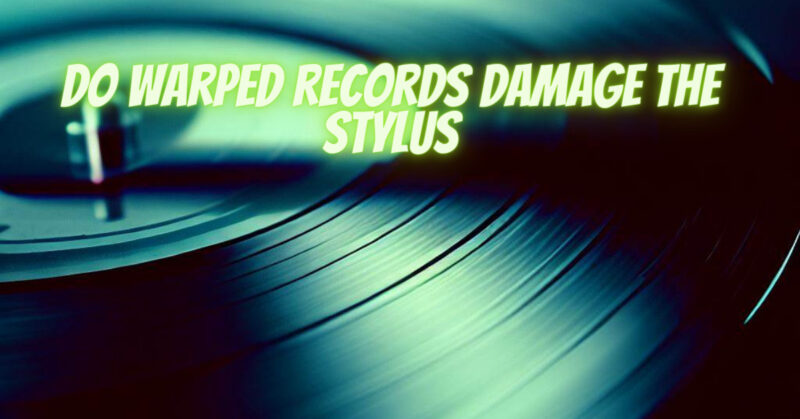Vinyl records have experienced a resurgence in popularity among music enthusiasts, offering a nostalgic and authentic listening experience. However, one concern that arises with vinyl records is warping, which can impact the overall audio quality and potentially harm the delicate stylus. In this article, we will explore the relationship between warped records and stylus damage, along with essential tips to preserve your vinyl collection.
- What Causes Record Warping?
Vinyl records are susceptible to warping due to various factors:
a. Heat: Exposure to direct sunlight or high temperatures can cause the vinyl to soften and warp.
b. Pressure: Storing records under heavy objects or stacking them improperly can lead to warping over time.
c. Humidity: Excessive moisture can cause the vinyl to warp, especially if records are stored in damp environments.
d. Poor Storage: Storing records upright without proper support can lead to edge warping.
- Impact on the Stylus
Warped records can pose potential risks to the stylus:
a. Uneven Tracking: A warped record can cause the stylus to track unevenly, resulting in fluctuations in sound quality and potential distortion.
b. Premature Wear: If the stylus encounters severe warping, it may experience increased friction, leading to premature wear and tear.
c. Stylus Jumping: In extreme cases, severe warping can cause the stylus to jump out of the grooves, potentially scratching the vinyl surface or causing damage to the stylus.
- How to Prevent Stylus Damage from Warped Records
To safeguard your stylus and preserve your vinyl collection:
a. Proper Storage: Store records upright and avoid stacking them without proper support to prevent warping.
b. Temperature and Humidity Control: Keep your vinyl collection in a cool and dry environment to minimize the risk of warping.
c. Avoid Direct Sunlight: Prevent exposure to direct sunlight, as heat can cause vinyl records to warp.
d. Handle with Care: When handling records, hold them by the edges and avoid putting pressure on the surface.
e. Inspect Records: Regularly inspect your vinyl records for signs of warping, especially if you notice tracking or sound quality issues.
f. Use a High-Quality Turntable: Invest in a high-quality turntable with adjustable tonearm weight and anti-skate settings to ensure proper tracking on warped records.
g. Professional Cleaning: Keep your records clean and dust-free to prevent additional friction on the stylus, which can occur when the grooves are filled with debris.
- How to Correct Warped Records
If you discover that one of your records is warped, you can attempt to correct minor warps using a record weight or clamp designed to flatten the vinyl. However, severe warping may be challenging to correct, and attempts to do so could potentially cause more harm.
While warped records can impact the audio quality and pose risks to the stylus, taking proper precautions and handling your vinyl collection with care can help prevent damage. By storing records correctly, controlling temperature and humidity, and inspecting your vinyl regularly, you can maintain the longevity of your cherished vinyl collection and enjoy an excellent listening experience on your turntable for years to come.


